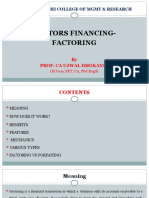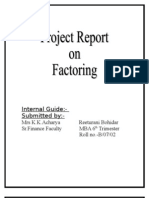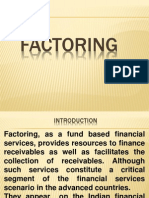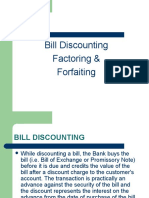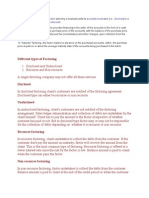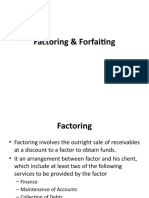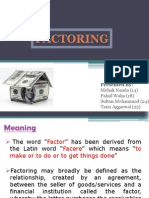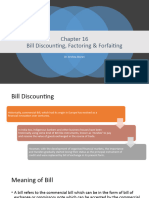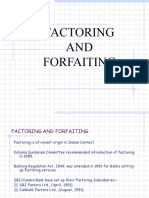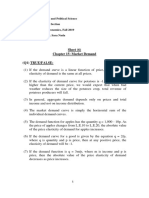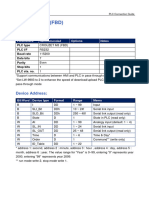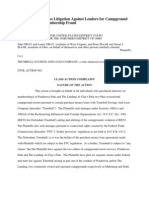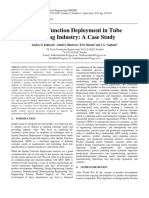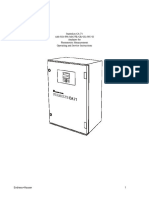0% found this document useful (0 votes)
27 views19 pagesFactoring & Forfaiting
Factoring is a financial arrangement where a company sells its trade debts to a financial institution for immediate cash, typically receiving 80% upfront. It involves maintaining sales ledgers, providing credit protection, and collecting payments, with types including recourse, non-recourse, disclosed, and undisclosed factoring. Forfaiting, on the other hand, is a similar process focused on medium-term financing for exports, allowing exporters to receive 100% of their export bills immediately, but it comes with its own set of advantages and disadvantages.
Uploaded by
TN DIVIJCopyright
© © All Rights Reserved
We take content rights seriously. If you suspect this is your content, claim it here.
Available Formats
Download as PPT, PDF, TXT or read online on Scribd
0% found this document useful (0 votes)
27 views19 pagesFactoring & Forfaiting
Factoring is a financial arrangement where a company sells its trade debts to a financial institution for immediate cash, typically receiving 80% upfront. It involves maintaining sales ledgers, providing credit protection, and collecting payments, with types including recourse, non-recourse, disclosed, and undisclosed factoring. Forfaiting, on the other hand, is a similar process focused on medium-term financing for exports, allowing exporters to receive 100% of their export bills immediately, but it comes with its own set of advantages and disadvantages.
Uploaded by
TN DIVIJCopyright
© © All Rights Reserved
We take content rights seriously. If you suspect this is your content, claim it here.
Available Formats
Download as PPT, PDF, TXT or read online on Scribd
/ 19
